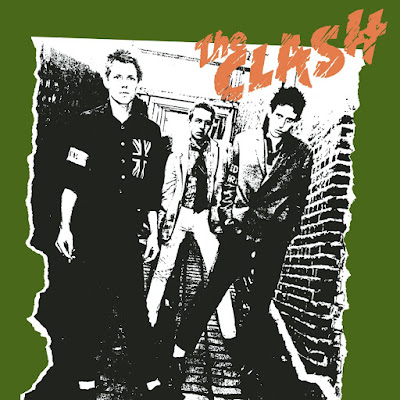Marking
its 45th anniversary today is the third album by The Clash, London
Calling, which was released in the UK on December 14th, 1979. Though
the initial steps towards creating the record were fraught with
struggles, their efforts would produce the band's most popular and
enduring album.
Prior to
beginning work on the album, principal songwriters Mick Jones and Joe
Strummer were both suffering from writer's block, not having come up
with anything new for nearly a year. The group had struggled with their
sound and musical direction on their sophomore album, Give 'em Enough
Rope, resulting in an uneven record that garnered mixed responses from
fans and critics. They had also recently split from manager Bernie
Rhodes, resulting in the group losing their rehearsal space. Things
began to turn around once they got settled into new digs and could begin
to focus on breaking through the writer's block that had stifled their
output. This was accomplished primarily due to a greater discipline
fostered during the rehearsal stages for the album. The band developed a
daily routine of afternoon rehearsals, broken up by a late-afternoon
social football game, which encouraged a friendly bond between the band
members. The football was followed by drinks at a local pub, and a
second rehearsal in the evening.
While
the group had been touring the US, the Americana influences helped to
broaden their interest in pursuing more varied musical styles. They'd
already begun to break out of the "punk" shackles on their second album,
dabbling in Jamaican-inspired reggae and ska, as well as hard rock, but
now they were adding rockabilly, New Orleans R&B, lounge jazz, and
new wave-tinged pop to their repertoire. The band gradually rebuilt
their confidence, with the styles of the session's early cover songs
setting the template for the diverse material that would be written for
London Calling. They were also encouraged by a growing recognition of
drummer Topper Headon's skills, which they realized could be used to
perform music in a wide array of genres beyond simple punk rock.
Once
all of these influences took flight in the studio, the group managed to
whip up enough for a double LP's worth of solid songs, each with its
own infectious hooks. Though most double LPs tend to suffer from filler
tunes, the flood of creativity that burst the damn during the
production of this album helped ensure that the quality of the material
remained consistent from start to finish. Everything from the album's
opening title track to the rousing Train in Vain, a radio hit that
helped crack the North American market, ensured the album was a major
success with both critics and record buyers on both sides of the pond,
who snapped up the release in droves.
Since
its release, the album has secured itself a place as one of the most
lauded releases, not only for the band, but in all the annals of rock
'n' roll. It regularly finds itself riding high on lists of all-time
best rock albums ever released. It certainly set the high water mark
for The Clash. While they would have other hits after this, nothing
would match the sheer consistency & quality achieved on London
Calling.

